Premium Only Content

Phil Harris-Alice Faye Show episode titled “Audition Show” (July 10, 1946
Cast and Roles
Phil Harris as himself (Phil Harris): A jive-talking, egotistical bandleader known for his comedic bravado and penchant for trouble. In this audition, he’s likely the central figure, setting up the show’s comedic tone.
Alice Faye as herself (Alice Faye): Phil’s glamorous, level-headed wife, a former movie star who provides witty counterbalance to Phil’s schemes. Her role likely emphasizes her singing and stabilizing presence.
Elliott Lewis as Frankie Remley: Phil’s sarcastic, left-handed guitarist and best friend, whose mischievous ideas often lead Phil astray. Lewis took over the role for this audition, replacing the real Frankie Remley.
Walter Tetley as Julius Abbruzio: A sassy, Brooklyn-accented grocery delivery boy who trades barbs with Phil, adding youthful energy and humor.
Robert North as Brother Willie: Alice’s pompous, freeloading brother, a foil for Phil with his pretentious demeanor.
Jeanine Roose and Anne Whitfield as Little Alice and Phyllis: The Harris daughters, precocious and clever, often outsmarting the adults with innocent charm.
Bill Forman as Announcer: Handles introductions, sponsor mentions (likely Fitch Shampoo for this audition), and transitions.
Note: The cast for this audition episode aligns with the early Fitch Bandwagon format, which was a musical-comedy variety show before transitioning to a full sitcom in 1948. Some roles, like Julius or Willie, may have been less prominent or not fully developed in this initial broadcast.
Episode Summary
The “Audition Show” (July 10, 1946) was a pilot for The Fitch Bandwagon, a musical-comedy variety program on NBC, testing the chemistry of Phil Harris and Alice Faye as co-hosts. Unlike the later sitcom format, this episode likely blended music, comedy sketches, and light domestic humor, introducing the fictionalized Harris-Faye household. Specific plot details are not well-documented, as audition episodes were often not archived, but based on the show’s early structure and sources like RadioEchoes.com, the episode probably featured:
Opening Banter: Phil and Alice engage in playful, vaudeville-style banter, with Phil’s exaggerated bravado clashing with Alice’s sharp wit. The announcer likely introduces the show’s premise, emphasizing the couple’s showbiz lifestyle.
Musical Numbers: Alice Faye, known for her film musicals, likely performs a popular song, possibly a ballad like “You’ll Never Know,” while Phil’s band delivers a jazzy number, showcasing his bandleader persona. Music was a key component of Fitch Bandwagon.
Comedy Sketch: A light domestic scenario, possibly involving Phil’s band or a minor mishap at home, sets up the comedic dynamic. Frankie Remley might instigate a scheme (e.g., a prank or a band-related blunder), with Julius adding sarcastic quips. The daughters, Little Alice and Phyllis, may appear briefly for cute, family-oriented humor.
Sponsor Integration: Fitch Shampoo, the sponsor, is woven into the comedy, with Phil or Alice humorously plugging the product, a common practice in radio at the time.
Tone and Purpose: The episode aims to showcase the Harris-Faye chemistry, blending their real-life marriage with fictionalized antics to appeal to family audiences. It likely ends with a musical closer and a teaser for future episodes.
Since this was an audition, the episode was designed to pitch the show to NBC and sponsors, focusing on broad appeal and star power rather than a complex plot. The runtime was approximately 34 minutes, per RadioEchoes.com. If you’d like me to search for a specific scene or check for surviving audio, let me know
U.S. News on July 10, 1946
Based on historical records and news archives for July 10, 1946:
Economic Price Controls: The U.S. Senate voted to restore wartime price controls on food, rent, and other goods after President Truman vetoed a weaker bill. This was part of the Office of Price Administration’s efforts to curb post-World War II inflation, a major concern for American families. The decision reflected public anxiety over rising costs, with meat prices a particular flashpoint.
Labor Strikes: The United Steelworkers of America were in negotiations, with a potential strike looming. Labor unrest was widespread, as workers demanded higher wages to match inflation, impacting industries nationwide.
Atomic Testing Aftermath: The U.S. was analyzing results from Operation Crossroads’ Test Able (July 1, 1946), the first postwar atomic bomb test at Bikini Atoll. Public fascination with nuclear power was high, alongside fears of its destructive potential.
Baseball Milestone: Ted Williams hit three home runs in a single game for the Boston Red Sox, a sports highlight that captured national attention and boosted morale in a sports-loving country.
These events shaped a tense but optimistic U.S., transitioning from wartime to postwar recovery, with families tuning into radio for escapism like The Fitch Bandwagon.
International News on July 10, 1946
Philippines Independence: Just six days earlier, on July 4, 1946, the Philippines gained full independence from the U.S., ending centuries of colonial rule. On July 10, global news highlighted the new nation’s challenges, including rebuilding after Japanese occupation and establishing a government under President Manuel Roxas.
Jewish Insurgency in Palestine: Tensions escalated in British-controlled Palestine, with Jewish groups like the Irgun demanding independence. On July 10, reports of skirmishes and British crackdowns foreshadowed the violent path to Israel’s 1948 founding, a growing international concern.
Nuremberg Trials: The trials of Nazi war criminals continued in Germany, with prosecutors presenting evidence against key figures. On July 10, global attention focused on the legal reckoning for the Holocaust, shaping postwar justice.
Chinese Civil War: Fighting intensified between Chinese Nationalists and Communists, with reports of clashes in Manchuria. This conflict, covered in international news, signaled the looming Communist victory in 1949.
These global stories reflected a world grappling with decolonization, justice, and ideological battles, contrasting with the lighthearted tone of U.S. radio.
Cultural Impact, If Any
The “Audition Show” itself had minimal direct cultural impact, as it was a test broadcast not widely heard or preserved. However, its role in launching The Fitch Bandwagon and later The Phil Harris-Alice Faye Show had broader significance:
Star Power Transition: The episode marked Phil Harris and Alice Faye’s shift from supporting roles (Phil on The Jack Benny Program, Alice as a film star) to leading their own show. It capitalized on their real-life marriage, a novelty that resonated with audiences craving authentic celebrity narratives.
Radio’s Golden Age: As part of The Fitch Bandwagon’s variety format, the audition reinforced radio’s role as a family entertainment hub in 1946, bridging music and comedy. Its success helped pave the way for the sitcom format that dominated by 1948, influencing shows like The Adventures of Ozzie and Harriet.
Gender Dynamics: Alice Faye’s role as a witty, equal partner challenged traditional radio tropes of passive female characters, reflecting postwar shifts toward women’s agency, though still within a domestic framework.
Limited Longevity: Since the episode was not part of the regular series and lacks surviving audio in many public archives, it didn’t leave a lasting imprint on its own. Its impact lies in proving the Harris-Faye formula, which became a cultural touchstone for 1950s family comedy.
-
 1:17:35
1:17:35
Man in America
9 hours agoIs Starlink RIPPING Us Apart from the Inside Out? w/ Cory Hillis
19.7K10 -
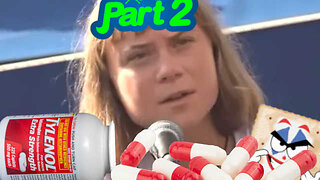 55:40
55:40
TheSaltyCracker
3 hours agoIdiots Chug Tylenol PT2 ReeEEStream 9-24-25
68K193 -
 LIVE
LIVE
Akademiks
4 hours agoYoung Thug Dissing YFN Lucci. Ready to Go back to Jail. Offset vs Cardi b
1,278 watching -
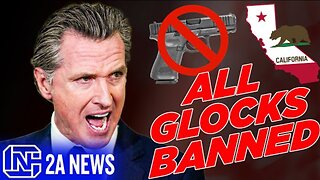 7:07
7:07
Colion Noir
13 hours agoCalifornia Just Banned All Glocks
28.6K30 -
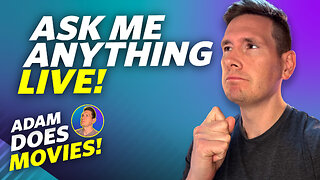
Adam Does Movies
6 hours agoTalking Movies + Ask Me Anything - LIVE
18.3K1 -
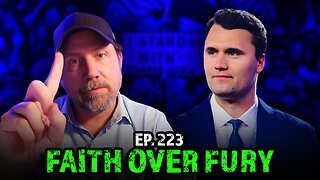
Jamie Kennedy
3 hours agoChoosing Good in a World Gone Dark | Ep 223 HTBITY with Jamie Kennedy
17.8K4 -
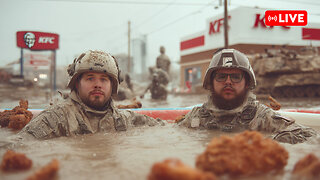 LIVE
LIVE
SpartakusLIVE
7 hours ago#1 Challenge CHAMPION of WZ || Ridin' The GRAVY Train w/ GloryJean
406 watching -

The Pascal Show
3 hours ago $0.56 earnedDISTURBING UPDATES! New Developments In The D4vd Celeste Case... Possible Celeste Sighting?!
21.2K2 -
 2:03:18
2:03:18
The Charlie Kirk Show
5 hours agoTPUSA Presents This is The Turning Point Tour LIVE with Megyn Kelly and Governor Glenn Youngkin!!
220K63 -
 1:37:35
1:37:35
Badlands Media
21 hours agoAltered State S3 Ep. 47: Epstein, DOJ Whistleblowers, and Trump’s Tightrope
43.4K3